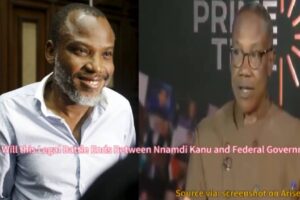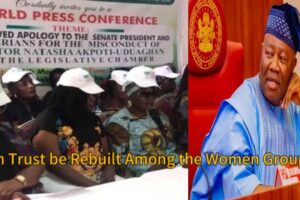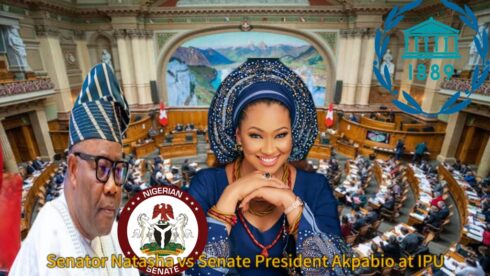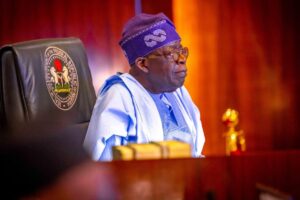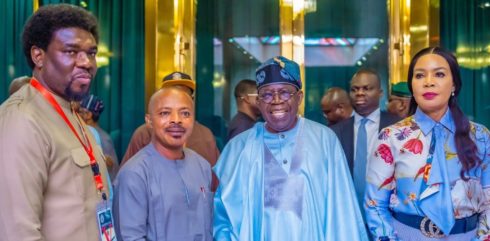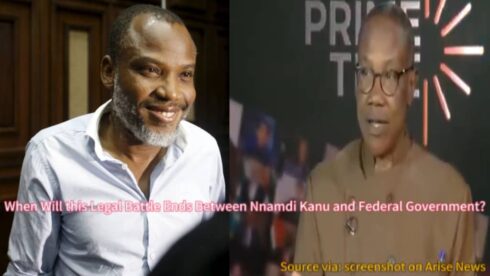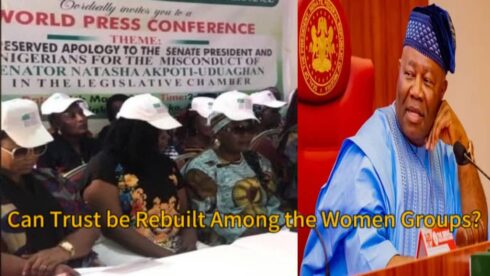In a landmark decision, President Bola Tinubu has approved a new national minimum wage of N70,000 for Nigerian workers. This announcement came during a meeting with leaders from the Trade Union Congress (TUC) and the Nigeria Labour Congress (NLC) in Abuja on Thursday. This was the second time in seven days that the parties convened to discuss labor-related issues, underscoring the administration’s commitment to improving workers’ welfare.
President Tinubu’s approval of the new minimum wage is part of a broader effort to enhance the standard of living for Nigerian workers. The President also pledged to review the national minimum wage law every three years to ensure that it keeps pace with inflation and the cost of living. This move is expected to bring significant relief to millions of workers across the country, who have long been advocating for an increase in their earnings.
Support for Private Sector and Sub-National
In addition to approving the new minimum wage, President Tinubu promised to find ways to assist the private sector and sub-national entities in meeting this new wage standard. Acknowledging the financial challenges faced by private businesses and state governments, the President emphasized the need for a collaborative approach to ensure that all workers benefit from the wage increase.
During the meeting, the President Tinubu discussed potential measures to support employers in the private sector, which include tax incentives and financial aid packages. For state governments, President Tinubu proposed a series of fiscal reforms and federal assistance programs aimed at bolstering their capacity to pay the new minimum wage. These initiatives are designed to prevent job losses and ensure the sustainability of businesses and public services.
Labour Leaders’ Response and University Unions
Labour leaders from the TUC and NLC applauded President Tinubu’s approval of the new minimum wage and his willingness to address their concerns. They described the decision as a “fatherly gesture” that demonstrates the President’s empathy and commitment to the welfare of Nigerian workers. This positive reception is expected to foster a more cooperative relationship between the government and labor unions moving forward.
In another significant development, President Tinubu pledged to use his discretionary powers to meet the demands of university unions who have been protesting over unpaid salaries. The President Tinubu assured the unions that their four months of unpaid salaries would be addressed promptly, signaling his administration’s dedication to resolving long-standing labor disputes in the education sector. This commitment is seen as a step towards stabilizing the nation’s higher education system and ensuring that academic staff are fairly compensated.
President Tinubu’s Approval of ₦70,000 Minimum Wage Sparks Mixed Reactions
President Bola Tinubu’s recent approval of a ₦70,000 minimum wage has stirred varied reactions across Nigeria. Many have welcomed the decision, viewing it as a significant step towards improving the quality of life for Nigerian workers. A prominent user on the social media platform, WeAreWhatNigeria, expressed enthusiasm, stating, “Well, a 133% increase in minimum wage is a massive jump. Agreeing to the 3-year review cycle instead of 5 years is also a very good move. God bless everyone for the final resolution.”
Supporters of the wage hike argue that it reflects President Tinubu’s commitment to the welfare of Nigerian workers. They believe this move will not only boost the purchasing power of the average worker but also stimulate economic growth by increasing consumer spending. Additionally, the decision to review the minimum wage every three years instead of five is seen as a proactive measure to ensure that wages keep pace with inflation and the cost of living.
Concerns Over Economic Implications
Despite the praise, some Nigerians have voiced concerns about the potential economic repercussions of the wage increase. Critics warn that raising the minimum wage to ₦70,000 could lead to inflation and increased living costs. A user known as Godfather on social media cautioned, “Anyone clamoring for more than ₦70,000 minimum wage wants to plunge Nigeria into economic disaster. I admire the president’s proactiveness on issues that have to do with strikes. It is noticeable he always tries to avoid any form of strike. I remember how long students were locked out of school during Buhari’s era. We must be patient with the president and pray.”
Skeptics argue that while the wage increase might bring short-term relief, it could exacerbate Nigeria’s economic challenges in the long run. They emphasize the need for the government’s economic team to manage inflation and ensure that the rise in wages does not lead to a corresponding surge in the prices of goods and services. The concern is that without proper economic management, the benefits of the wage increase could be negated by a higher cost of living.
Perspectives on Nigeria’s Economic Trajectory
The debate over the minimum wage increase also highlights broader concerns about Nigeria’s economic trajectory. Some commentators note that despite the wage hike, the actual value of the minimum wage in dollar terms has decreased over the years. One social media user, Patric, pointed out, “That is $44 a month. Before this administration came in, the minimum wage was $70 a month. Before APC came in, the minimum wage was about $100 a month. So we shouldn’t celebrate. We are progressively getting worse. From $100 to $70, now $44. Who knows, maybe it will be $10 soon.“
This perspective underscores the frustration among some Nigerians who feel that the country’s economic situation has deteriorated over time. They argue that real progress will require not just wage increases but comprehensive economic reforms that address inflation, improve productivity, and support small and medium-sized enterprises (SMEs). The hope is that the government will take a holistic approach to economic development, ensuring that wage increases are sustainable and accompanied by measures to boost overall economic health.
However President Tinubu’s approval of a ₦70,000 minimum wage is a landmark decision that has been met with both praise and criticism, it reflects the complex dynamics of Nigeria’s economic landscape. The mixed reactions highlight the challenges the government faces in balancing immediate relief for workers with the long-term goal of sustainable economic growth.
Table of Contents
Discover more from OGM News NG
Subscribe to get the latest posts sent to your email.



